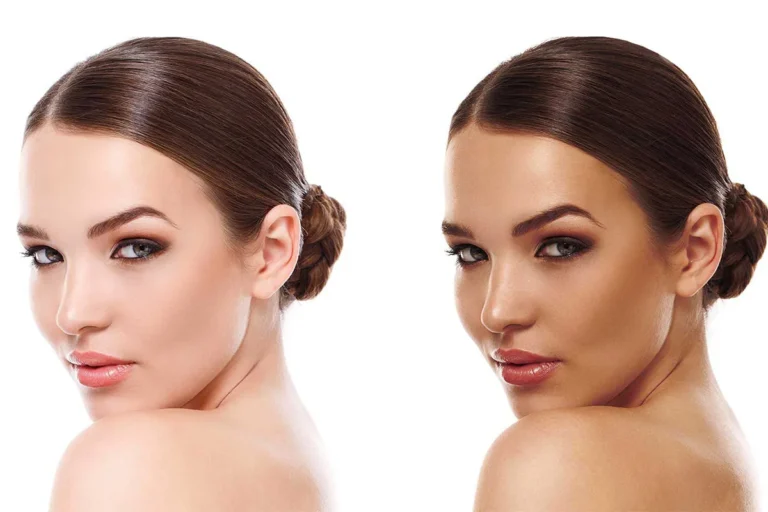What is Uneven Skin Tone: Everything You Want to Know

Uneven skin tone is a common concern that many individuals grapple with, affecting people of all ages and skin types. Understanding the intricacies of uneven skin, its characteristics, and effective ways to address it is crucial for achieving a radiant complexion. Our aims to shed light on what uneven skin tones is, how to determine skin tones, and practical tips for maintaining healthy and balanced skin.
How to Determine Uneven Skin Tones?
Identifying uneven skin tone involves recognizing variations in pigmentation, often manifesting as dark spots, redness, or patches on the skin. Factors such as sun exposure, hormonal changes, and genetics can contribute to these irregularities. To determine uneven tones, observe your skin closely for any discoloration or areas that differ from the overall complexion.
Uneven Skin Tone Shades
Uneven skin tone is not a one-size-fits-all concern; it manifests in various shades and tones, each indicating different underlying issues. By understanding these shades, you can tailor your skincare routine to address specific concerns more effectively. Here’s a breakdown of uneven skin tones shades and how to navigate them for a personalized approach to skincare.
1. Hyperpigmentation
Hyperpigmentation is one of the most common uneven skin tone shades, characterized by dark spots or patches. This occurs when there is an excess production of melanin, often triggered by sun exposure, inflammation, or hormonal changes. Targeted treatments with ingredients like vitamin C, alpha arbutin, or licorice extract can help fade hyperpigmentation and promote a more even complexion.
2. Redness
Redness in the skin can result from factors such as inflammation, irritation, or conditions like rosacea. To address redness, opt for products with calming ingredients like chamomile, aloe vera, or green tea extract. Additionally, using a gentle, fragrance-free skincare routine can help minimize irritation and reduce redness over time.
3. Dark Spots and Sun Damage
Dark spots caused by sun damage are a specific shade of unevenness. Sunscreen is crucial in preventing further damage, but incorporating products with niacinamide and alpha hydroxy acids (AHAs) can also aid in fading existing dark spots, promoting a more uniform skin tone.
4. Uneven Texture
Uneven skin tone can also manifest as textural irregularities, such as rough patches or bumpy areas. Exfoliating regularly with products containing glycolic acid or salicylic acid can help smooth the skin’s surface, improving overall texture and promoting an even appearance.
5. Post-Inflammatory Hyperpigmentation (PIH)
PIH occurs as a result of healing from inflammation, such as acne or skin trauma. To address this uneven skin tone shade, incorporate products with ingredients like retinoids, which encourage cell turnover and fade pigmentation over time.
6. Dullness
Dullness is often associated with uneven skin tone, making the complexion appear lackluster. Choose skincare products that focus on brightening and revitalizing, such as vitamin C serum for uneven skin tone or products containing fruit acids for a radiant glow.
7. Yellow or Sallow Skin
A yellow or sallow undertone can contribute to the perception of uneven skin tone. Choose skincare products that balance and neutralize undertones, and consider incorporating a color corrector into your makeup routine to counteract any unwanted hues.
8. Blotchiness
Blotchiness involves irregular patches of color on the skin. Products containing antioxidants, such as vitamin E, can help soothe and even out blotchy areas, contributing to a more harmonious complexion.
How to Get Rid of Uneven Skin Tone
Uneven skin tone is a common skincare concern, but with a thoughtful and consistent approach, you can diminish its appearance and unveil a more balanced and radiant complexion. Here’s a multifaceted guide to help you address and combat uneven skin tone effectively.

1. Regular Exfoliation
Exfoliation is a key step in any skincare routine, helping to slough off dead skin cells and stimulate cell turnover. Choose a gentle exfoliator with ingredients like alpha hydroxy acids (AHAs) or beta hydroxy acids (BHAs) to reveal fresher, more even-toned skin.
2. Sun Protection
Sun exposure is a major contributor to uneven skin tone, causing dark spots and pigmentation. This simple step will shield your skin from harmful UV rays, preventing further discoloration.
3. Topical Treatments
Explore skincare products formulated with potent ingredients known for their brightening properties. Vitamin C, niacinamide, and retinoids are effective in targeting uneven skin tone. Integrate these products into your routine, applying them consistently for optimal results.
4. Hydration is Key
Well-hydrated skin appears plump and healthy, minimizing the appearance of unevenness. Choose a moisturizer suitable for your skin type and apply it morning and night. Consider products containing hyaluronic acid or glycerin for intense hydration.
5. Even Skin Tone Masks
Treat your skin to masks designed to promote an even complexion. Look for masks with ingredients like kaolin clay, licorice extract, or alpha arbutin. These can help soothe, brighten, and even out skin tone when used regularly.
6. Consistent Skincare Routine
Consistency is crucial in addressing uneven skin tone. Stick to your skincare routine, giving products time to work. Patience is key, as visible improvements may take a few weeks.
7. Professional Treatments
For persistent uneven skin tone concerns, consider professional treatments. Chemical peels, microdermabrasion, and laser therapy performed by dermatologists can provide more intensive and targeted results.
8. Color-Correcting Makeup
While working on improving your skin tone, use color-correcting makeup to conceal any immediate concerns. Green-tinted primers can neutralize redness, and peach or orange concealers can counteract dark spots.
9. Avoid Harsh Ingredients
Be mindful of harsh skincare ingredients that may exacerbate uneven skin. Avoid excessive use of products containing alcohol or strong fragrances, as they can irritate the skin and worsen pigmentation.
Uneven Skin Tone Characteristics
Uneven skin is a nuanced concern with distinct characteristics that set it apart from other skin issues. Recognizing these traits is essential in developing a targeted approach to address and improve the appearance of uneven skin. Here are the key characteristics associated with uneven skin:
1. Dark Spots:
Dark spots, often referred to as hyperpigmentation or age spots, are areas of the skin that appear darker than the surrounding areas. They result from an overproduction of melanin triggered by factors like sun exposure, inflammation, or hormonal changes.
Addressing Dark Spots:
- Use uneven skin tone products with ingredients like vitamin C, alpha arbutin, or kojic acid, known for their brightening properties.
- Apply a broad-spectrum sunscreen daily to prevent further darkening and protect the skin from harmful UV rays.
2. Redness:
Redness is characterized by areas of the skin that appear red or flushed. This can be caused by inflammation, irritation, or conditions such as rosacea.
Addressing Redness:
- Choose skincare products with calming ingredients like chamomile, aloe vera, or green tea extract to soothe and reduce redness.
- Establish a gentle skincare routine, avoiding harsh chemicals or abrasive exfoliants that may exacerbate redness.
3. Patchiness:
Patchiness involves uneven texture or color across the face, creating an irregular and inconsistent appearance.
Addressing Patchiness:
- Incorporate exfoliating products with ingredients like glycolic acid or salicylic acid to improve overall skin texture.
- Consider using a color corrector in your makeup routine to balance out uneven color tones on the skin.
Uneven Skin tone Products
Discover skincare products enriched with coconut oil, known for its nourishing and moisturizing properties. Here are some reputable skincare brands and their featured products:
| Product Name | Key Features | Reviews |
| Coconut Glow Serum | – Enriched with pure coconut oil extract. | “Leaves my skin radiant and smooth!” – User123 |
| Coconut Infused Night Cream | – Luxurious uneven skin tone cream for night with coconut oil infusion. | “Obsessed with the results!” – BeautyQueen456 |
| Coconut Bliss Body Butter | – Indulgent body butter with organic coconut oil. | “My go-to for soft, supple skin!” – SkincareEnthusiast789 |
Conclusion
Understanding and addressing uneven skin tone is a journey towards achieving radiant and healthy skin. By implementing targeted skincare routines, and exploring products, you can take significant steps in achieving a more even complexion.






